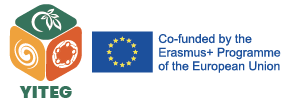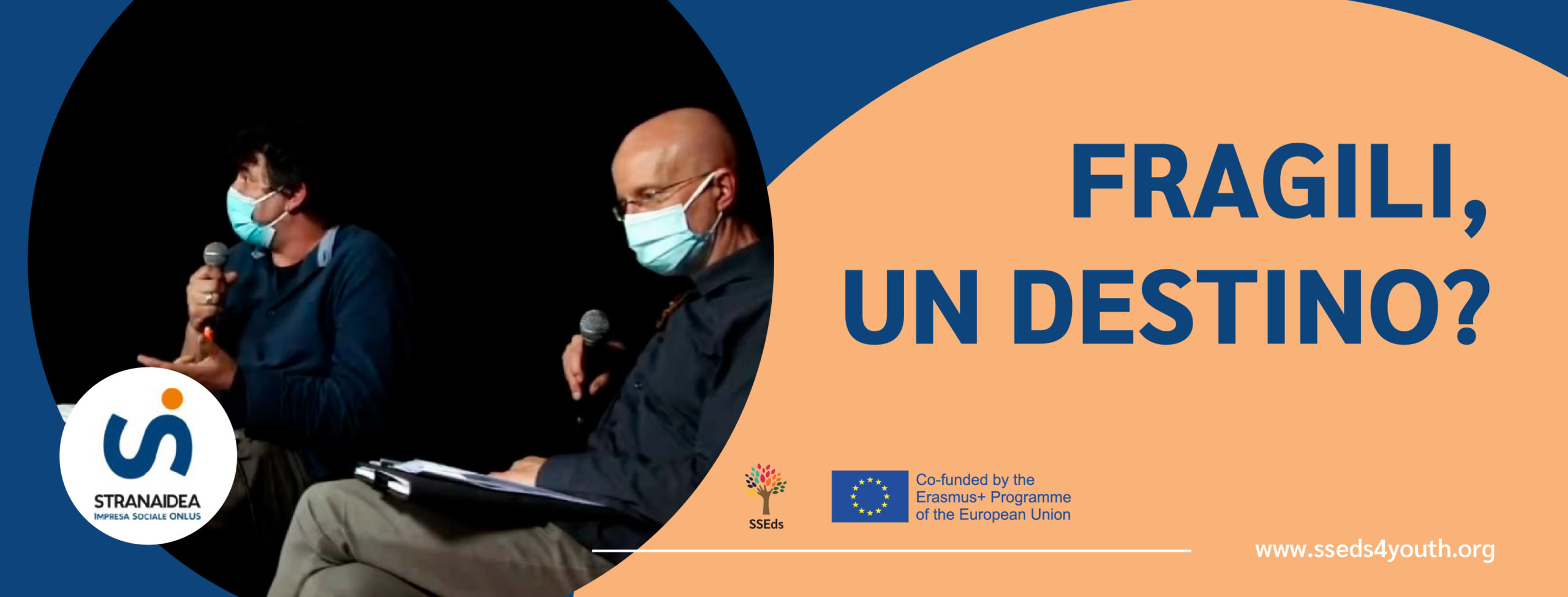Why is poverty so difficult to eradicate? Why are plans to counteract it almost always ineffective?
Fragility, vulnerability, adult and educational poverty are the not obvious, but very probable, outcome of the concomitance of two factors: the weakness of the individual’s “internal capacities”, and the lack of resources, materials and immaterial, to which they have access in the community in which they lives.
It is elementary to understand how resources not only must exist, but must be accessible and the person must have the cognitive abilities to recognize them and know how to use them.
Therefore, it is clear, from the model and from the experience gained “in the field”, how sometimes fragility, vulnerability, poverty are “a destiny”, a family “legacy” that is repeated in subsequent generations: the material poverty of nucleus risks generating educational poverty, educational poverty in the family and the weakness of the “educating community” can generate individuals with insufficient “skills” (skills, meta-competences for learning and relating, resilience, resources), whose “functioning” , inadequate to the demands of the society in which they live, generate poverty.
On these issues, the SIN.AP.S.I Consortium, through the two associated cooperatives Stranaidea and Dalla Stessa Parte, has created a webinar with 109 members entitled:
“Fragile, a destiny?”Final event of the CISTAI project funded by the We Care call
The We Care "CISTAI" project
This initiative is the final result of the We Care project (Welfare Cantiere Regionale referred to in the tender “EXPERIMENTATION OF INNOVATIVE ACTIONS OF TERRITORIAL WELFARE”) called “CI STAI” (implemented with the resources of the European Social Fund – ESF and the European Regional Development Fund – ERDF), in particular with actions 4.1 “Support for parenthood” and 4.2 “Support for the autonomy of the frail adult”, implemented in the Ciriacese and Canavese area by the CIS di Ciriè and CISS 38 di Cuorgnè consortiums, by the SINAPSI Consortium (with its territorial cooperatives, Dalla Stessa Parte and Stranaidea), and by the Copernico Consortium (with the territorial cooperatives Andirivieni and Alce Rosso).
Starting from the brilliant indications of Gino Mazzoli and from the studies of Chiara Saraceno, the project actions focused on a series of interventions which, taking into account the cognitive effects, and not just quantitative ones, of scarcity, went to work on the prevention of chronicization of poverty, through actions to support “non-monetary” income, to accompany and encourage savings, to strengthen the skills of “adult citizenship” and to support the autonomy of the family unit.
Event program:
“Educational poverty (in times of COVID): causes and contrast strategies“
edited by Chiara Saraceno, honorary fellow at the Collegio Carlo Alberto, sociologist, scholar of the family, welfare systems and poverty.
“Adult vulnerability: elements that affect the exercise of the adult role“
edited by Gino Mazzoli, psychosociologist and lecturer at the Catholic University of the Sacred Heart of Milan.
Chiara Saraceno:
Educational poverty: the future is played by children. It is true that in the course of life you can recover what was lost before, you do not need to have a deterministic vision, but it is the duty of the Republic to remove the obstacles that prevent the full development of one’s personality and the fulfillment of people (Article 3 of the Constitution) and this applies primarily to children, because it means enabling them to develop their skills and therefore it means being able to lead a life in which you imagine your future.
It is a very serious inequality not being able to develop one’s abilities, especially for those born and raised in the lower levels of the social ladder. Deprivation at birth affects survival and capacity building themselves; the first 1000 days of life are fundamental, even if they are the years least subject to strong attention by policy making and the most hidden years within the family.
Educational poverty is a poverty of resources and the other aspect is the result of this lack, the incapacities become structural: there is a link between the skills developed in childhood and cognitive development, the ability to understand and express oneself, the poverty of vocabulary that limits the range of what can be understood and expressed.
These inequalities then arrive at school age and the school, that should equal them, struggles a lot. In early childhood there is a strong inequality of resources in Italy, nursery schools account for 13% of the total number of children.
If we consider nurseries as reconciliation services for working mothers, we do not focus on children: all the research shows that those who went to the nursery for at least a year then have more capacity development later on.
Other research shows that 15-year-olds from disadvantaged situations do not develop basic skills necessary not only for academic performance, but to become aware citizens with the resources to understand participation tools and distinguish between news.
This deficit then has outcomes along the entire course of growth such as early school leaving: the phenomenon of the Neet has data in Italy among the largest in Europe. The Republic is unable to remove obstacles, early school leaving has become very acute in these two school years of Covid and there are no ministerial data in real time; it would be useful to monitor them in progress and not in the final balance.
Educational poverty is a real indicator of an inequality that is not fought enough; early interventions to parental support families are fundamental. There are wonderful experiences that bring parents together even before the birth of the child and find places of comparison in the early stages of growth, just as nurseries allow learning among peers.
It is not enough to intervene on the material aspect to combat educational poverty: more services for children, more integrated and full-time schools and more educating communities that also support parents.
Gino Mazzoli
NCMNN Assessment Model to evaluate the capacities of individuals to plan interventions.
The dilemma of social workers is to understand who to access the available resources: the assessment serves to understand precisely to see if there are the preconditions for the intervention to be effective.
The social worker has the responsibility to choose who can access the resources and this tool helps to decide objectively, so as not to give answers to those who shout the loudest or those who wait longer.
The situation that has arisen with the pandemic weakens the institutions and weakens the intermediate range of citizens who until now had not faced difficulties and deprivations as they do now.
Operators and welfare must work on social networks so that if they help the penultimate will also serve the last ones: we work for the last ones if we work for everyone with respect to social network and solidarity resources which are the third pillar together with individual and structural resources and institutional (services, transport, subsidies). Here the strong crumbling has occurred on social resources and networks: there is a decline historically due to the decrease in volunteering, for example due to the extension of the working age.
Vulnerability indicators:
– constantly increasing mental disorders (panic attacks, anxiety and depression)
– bank bad debts of households (banks no longer provide credit)
– fragile work: job vulnerability, layoffs and enrolled in the employment center, precarious work.
Widespread resentment against institutions starts from the newly vulnerable, an impoverished middle class that tends to live beyond their means (debt), poverty of family and social networks, impoverishment due to natural events such as separations and the aging of grandparents or the loss of work, ashamed to ask for help (today resentment) for the culture of performance (compulsory freedom), without the “physical” to support poverty.
It is necessary to take into consideration the network resources of the users that are difficult to map, it may take time to see them, but they are among the variables to be taken into consideration together with the assets and individual resources and the structural ones. The objectivity of this evaluation is variable, but it is better than nothing, it is scarcely predictable, but we need to have this approach to complexity to help people realize the meaning of the interviews we do, the rules are not enough, but it is the application of these norms which is the heart of our action.
Not just money, but we also have to map the networks that are the key to vulnerability in this situation: the middle class is retreating into recession.
Once the networks were solid: Public Administrations, trade unions, parties and the third sector that need to be rearranged to build places to build meaning.
Today we have actors with members or users, but most of them are outside trade unions and the third sector and online social networks do not replace physical ones.
What to do?
Generate resources: a large community operation with all to make a critical mass of useful, connected, sustainable, all-round and successful practices.
There will be no resources to meet the needs of the 30% of the population who are the new vulnerable.
Involving unusual pivots: newsagents, hairdressers, bartenders, traffic police, librarians, bankers.
VIP project example: “very informal people” of relational traders who support the vulnerables. The double bottom of the objects of social work: while I regenerate a park I build social bonds.
We need to forge links with everyone to reach the most vulnerable.
The social work produces innovation in an unexpected way, experiences are not automatically replicable. The social brings this competence that nobody takes care of, to work with a complex magma that requires skills to go and discover new practices, to see them and enhance them knowing that there are no linear paths and that the variables involved are many.
What parenting skills are important?
Profesor Saraceno:
– the awareness that one cannot be perfect parents; the generative capacity to bring into the world and ensure that children are born in the world according to their abilities and not that they become and do what I want or how I do not want;
– Knowing how to give the rules;
– feed with cuddles and tell stories, read even to small children;
– listening skills;
– do not confuse them with ourselves;
– do not be friends because we are not equal, we are responsible for them.
Minors in Italy are not seen as holders of their own rights and needs, but as family baggage. With the pandemic it turned out that school spaces are not suitable for a freer learning of collaboration, experimentation, relationship, but only frontal.
The needs of minors are underestimated. Poverty is concentrated more among large families, but they can access less and take less than households without minors or with fewer children. It is believed that the needs of minors are met by the family: their need to go out and socialize was greatly underestimated during the first lockdown. There is a systematic underestimation of the needs of minors deemed to belong to families.
The associations have been an antenna on the territory during the closure of the school, it cannot replace the public, but it is necessary. Institutions have never been self-sufficient, the problem is when there are no resources. To grow, there is a need for other adults of reference, available in the area that minors meet and choose: they must detach themselves from their parents and not be alone among equals and it takes a willingness as parents to facilitate this research and there must be these contact persons in the area. Example of the community concierge of Porta Palazzo in Turin which activated the inhabitants of the neighborhood and the traders and created a community of the gift of dentists who treat for free, those who teach to draw, bartenders who offered internships and then hired those who came from school. The third sector should also create opportunities for individuals who are not associated.
Mazzoli:
The operator cannot take care of everything, but it is important that he focus his attention on these aspects. These new social figures of relational traders, such as barmen and hairdressers, must be involved in collecting what they see, what changes in society, first doing a scouting job to choose the people available to become “social brokers”, without economic recognition: baristas who have made this path of knowledge of the available resources of the territory to become a reference contact, have then seen an increase in customers. Osmosis between social operators and relational traders in joint tables: the operator becomes a producer who weaves and creates the conditions to develop social networks in the territories, leaving the scene to others, one cannot be a director and an actor at the same time. You can’t delegate too much to the institutions because they can’t do it, nor take on all the responsibilities.
Stages of community welfare work:
1) Hooking: approach that changes from neighborhood and from condominium to house, it is necessary to build a set to hook the sense
2) Set-up: example of listening work with a group of mothers chatting, being able to leave their children with someone else for a while.
3) Maintenance and accompaniment: planning and reflection groups that also look to the outside and support this type of interventions.
Getting the problem of new vulnerabilities out of an exclusively “welfaristic” reading, assuming its strongly political significance, opens up very consistent explanatory and operational potentials: innovation of participatory styles, preparation of new organizational devices to re-articulate democracy, rethinking of the role of public institutions in making room for participation, building new skills to manage new forms of politics capable of “bringing citizens closer to citizenship”, starting with a common front to everyday problems.
The widening of the area of vulnerability as far as the eye can see is not just a question of welfare, but opens up a political problem: a new majority no longer feels represented and silently slips out of citizenship. It is a risk for democracy, but also an opportunity to reactivate participatory paths, between civil society and institutions, starting from the “confrontation” of everyday problems. In the awareness that building public space is not only a duty but also a right.
The intelligence of the “how”, of the passage from saying to doing, is the heart of a project that aims to build new forms of politics. These require new skills, which today are not very widespread and even less taught. An alliance between social and institutional actors is needed to nurture a new generation of socio-political operators capable of taking up the challenge of new participation, willing on the one hand to experiment and on the other to re-elaborate initiatives together with others.
Community welfare is not the “unprofessional” part of welfare, which can be delegated to voluntary work or, worse still, the expression of a desire to “make the citizens pay for the crisis”, but the lever of a change in the welfare state to guarantee decent levels of services for everyone.
The new community work needs new pivots: baristas, hairdressers, newsagents, but also banking operators, policemen, librarians, doctors, pediatricians, who are already de facto community workers, because, having a huge dowry of social relations, they are able to intercept a wide range of difficult situations.
Another interesting accelerator could be a “School of Civic Engagement” centered on the Covid emergency. Not the umpteenth flood of lessons with users who take notes and try, once “back home”, to bring the theory down to earth, but the offer of an opportunity to do monitoring, comparative analysis and on-site consultancy towards a consistent number of local contexts.
With the excuse of offering some guidance, experiences are connected in a community whose learning and dissemination effect could be exponential.
Contacts Stranaidea S.C.S. – Impresa Sociale Onlus
www.kaleido-scop.com
Facebook @stranaidea.onlus Instagram @stranaidea.onlus cooperativa@stranaidea.it


